In a rare show of defiance, crowds in China gathered for the third night as protests against Covid restrictions spread to Beijing, Shanghai and other cities. People held blank sheets of paper, symbolizing censorship, and demanded the Chinese president step down, The Wall Street Journal reports (below).
“During Xi Jinping’s 10 years in power, these are the most public and most widespread displays of anger by the citizenry against government policy,” Bates Gill, a China expert with Asia Society, told Reuters.
“We don’t want lockdowns, we want freedom!” protesters shouted as they wound westward through one of Beijing’s manicured embassy districts. “Freedom of the press! Freedom of publishing!” The Times reports:
It was an extraordinary scene, rarely seen anywhere in China, let alone the capital, under Xi Jinping, the country’s authoritarian leader. But the elation of the moment was laced with anxiety about what, exactly, was happening. When some people began shouting explicitly political slogans, others urged them to remain more narrowly focused on opposing Covid controls.
This is an extraordinary, historic moment in China
Protests are breaking out across the country-from Beijing, to elite colleges, to other major cities, and even far flung places
Shocking to hear people chanting for Xi to step down
This is people past their breaking point @cnn pic.twitter.com/6lccNGIycT— Selina Wang (@selinawangtv) November 27, 2022
On Saturday, protests erupted in Urumqi, the capital of Xinjiang, after a Thursday apartment fire reportedly killed 10, VOX reports:
Information from this part of China is particularly difficult to verify due not just to Covid lockdowns — which have been active in Xinjiang for more than 100 days — but also because of the Xi regime’s desire to shield its treatment of ethnic Uyghur people from international scrutiny. According to some experts and Uyghur scholars and activists, the fire occurred in a majority Uyghur part of the city, and Uyghur families have been the primary victims of the fire.
‘Refracted’ protests
“What’s happened in the past 24 hours is novel in that protesters have appeared on the streets in multiple cities with apparent knowledge of what is happening in other parts of the country,” Cambridge University China scholar William Hurst tweeted. “They’re all mobilising around #Covid, but this is refracted through distinct lenses,” whether that’s labor, local governance, student protests, rural protests, or systematic political dissent, as he put it.
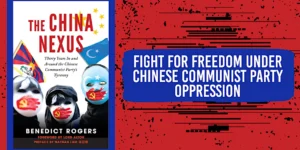 On Sunday, hundreds of students gathered on the campus of Tsinghua University, in northwest Beijing, where they have been largely prohibited from leaving for weeks because of Covid restrictions. “Democracy and rule of law,” the crowd chanted. “Freedom of expression,” The Times adds.
On Sunday, hundreds of students gathered on the campus of Tsinghua University, in northwest Beijing, where they have been largely prohibited from leaving for weeks because of Covid restrictions. “Democracy and rule of law,” the crowd chanted. “Freedom of expression,” The Times adds.
‘CCP is stuck’
“[The protests are the] most severe test for Xi since taking power, and at a complex time, domestically and geopolitically,” the International Institute for Strategic Studies’ James Crabtree tweeted. “The [Chinese Communist Party] is stuck: having staked Xi authority on Zero Covid, it finds it impossible to take only sensible route out, namely importing MRNA vaccines.”
While protests do occur in China, they rarely happen on this scale, nor take such direct aim at the central government and the nation’s leader, said Maria Repnikova, an associate professor at Georgia State University who studies Chinese politics and media.
“This is a different type of protest from the more localized protests we have seen recurring over the past two decades that tend to focus their claims and demands on local officials and on very targeted societal and economic issues,” she told CNN. Instead, this time the protests have expanded to include “the sharper expression of political grievances alongside with concerns about Covid-19 lockdowns.”
In Beijing, students at Tsinghua University raised signs showing a math equation devised by the Russian physicist Alexander Friedmann, whose surname in Chinese is a homonym for “free man.” And on China’s suppressed internet, protesters resorted to irony: They posted walls of text filled with the Chinese characters for “yes,” “good” and “correct” to signal their discontent while evading censors, The Times reports.
 “People have a common message,” said Xiao Qiang (right), a researcher on internet freedom at the University of California, Berkeley. “They know what they want to express, and authorities know too, so people don’t need to say anything. If you hold a blank sheet, then everyone knows what you mean.”
“People have a common message,” said Xiao Qiang (right), a researcher on internet freedom at the University of California, Berkeley. “They know what they want to express, and authorities know too, so people don’t need to say anything. If you hold a blank sheet, then everyone knows what you mean.”
Unprecedented
“This is unheard of in this era,” Minxin Pei, a professor of government at Claremont McKenna College, said in an interview. “It reflects a great deal of frustration with the Covid policies. People are just tired.”

Minxin Pei
“The immediate challenge is whether and how they’re going to continue with ‘zero Covid’ when there is so much frustration. This is a decision he has to make in the next, say, 48 to 72 hours,” added Pei, a National Endowment for Democracy (NED) board member. “You can arrest people and put them in jail, but the virus will still be there. There are simply no easy answers for him, only hard choices.”
What will particularly spook the party’s leadership, analysts said, is the protesters’ rage at China’s top brass. This, they argue, is unprecedented since the pro-democracy rallies in 1989 that were ruthlessly crushed, AFP reports.
Xi’s team is now made up entirely of loyalists, all of whose appointments were personally vetted by Xi, and there is little or no room for debate, for considering alternatives, or for speaking truth to power, notes Stephen Roach, a Senior Fellow at the Paul Tsai China Center at Yale Law School and the author of Accidental Conflict: America, China, and the Clash of False Narratives.
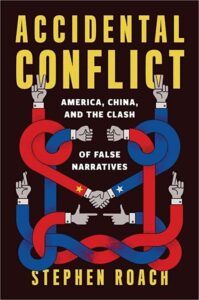 As productivity falls and Chinese growth stagnates, it is unclear who, if anyone, will tell Xi the toughest truth of all: that his obsession with security is undermining China by weakening the economic foundations on which the country’s strength depends, he writes for Foreign Affairs.
As productivity falls and Chinese growth stagnates, it is unclear who, if anyone, will tell Xi the toughest truth of all: that his obsession with security is undermining China by weakening the economic foundations on which the country’s strength depends, he writes for Foreign Affairs.
“In terms of both the scale and intensity, this is the single largest protest by young people in China since the student movement in 1989,” Willy Wo-Lap Lam, Senior Fellow at The Jamestown Foundation, told AFP. “In 1989, students were very careful not to attack the party leadership by name. This time they have been very specific (about wanting a) change in leadership.”
The scope of the protests — from elite universities in Beijing to central Chinese cities such as Wuhan and Chengdu — is notable, Lam said.
Other observers fear the protests could prompt a government crackdown leading to a more authoritarian era.
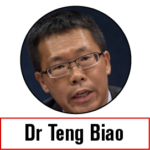
Credit: RFA
It is not in Xi’s character to give in, analysts tell Reuters. “If he lets go, it would mean that his past zero-COVID policy has completely failed and he would have to take responsibility for it. This makes him lose face,” said Teng Biao, Chinese human rights activist, lawyer and scholar.
Many observers detect two unique factors about the current protests, the Guardian adds:
- In 1989 the protests were largely confined to Beijing, but these demonstrations are much more geographically diffuse, and with an apparent knowledge of what other cities are doing.
- Second, there is a sense that the proximate cause – Xi’s unending hallmark zero-Covid policy – is enough to bring people on to the streets, but also resonant enough to pose wider questions about how the Chinese state operates.
Xi, an ardent nationalist, has politicized the issue to the point that exiting the “zero COVID” policy could be seen as a loss to his reputation and authority, The AP reports.
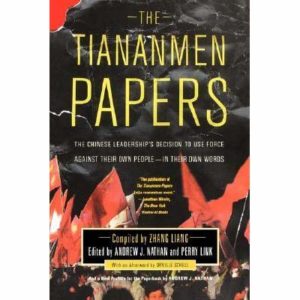 “Zero COVID” was “supposed to demonstrate the superiority of the ‘Chinese model,’ but ended up demonstrating the risk that when authoritarian regimes make mistakes, those mistakes can be colossal,” said Andrew Nathan, a Chinese politics specialist at Columbia University. He edited The Tiananmen Papers, an insider account of the government’s response to the 1989 protests.
“Zero COVID” was “supposed to demonstrate the superiority of the ‘Chinese model,’ but ended up demonstrating the risk that when authoritarian regimes make mistakes, those mistakes can be colossal,” said Andrew Nathan, a Chinese politics specialist at Columbia University. He edited The Tiananmen Papers, an insider account of the government’s response to the 1989 protests.
“But I think the regime has backed itself into a corner and has no way to yield. It has lots of force, and if necessary, it will use it,” Nathan said. “If it could hold onto power in the face of the pro-democracy demonstrations of 1989, it can do so again now.”
“The protests reached a new point over the weekend, particularly with slogans asking for Xi to stand down appearing. Previously, they were about local implementation [of zero-Covid],” said Steve Tsang, head of the SOAS China Institute at the University of London.
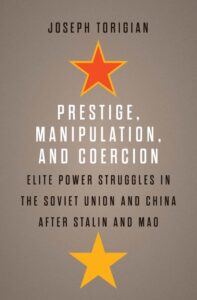 “I think [Xi] will turn to repression of some form to stamp out further protests against the policy and his leadership,” Tsang told the FT. “Abandoning zero-Covid now would be too embarrassing and a sign of weakness.”
“I think [Xi] will turn to repression of some form to stamp out further protests against the policy and his leadership,” Tsang told the FT. “Abandoning zero-Covid now would be too embarrassing and a sign of weakness.”
“The anger has been pent up for a while, but I think the 20th Congress provided an expectation that it would wind down,” said Yasheng Huang, a professor at the MIT Sloan School of Management who leads its China Lab, referring to the party’s leadership reshuffle in October. “When that did not happen, the frustration quickly boiled over.”
“Covid Zero produced an unintended consequence, which is putting a huge number of people in the same situation,” he observed. “This is a game changer.”
Law prof Xu Zhangrun foresaw in 2020 that CCP covid policy could convert dissatisfaction with authoritarianism into mass protest.
Read “Viral Alarm: When Fury Overcomes Fear,” trans. Geremie Barmé: https://t.co/7QwC3UFray https://t.co/foLs41VJlQ— Journal of Democracy (@JoDemocracy) November 27, 2022
📣EVENT: Using new tools and technologies, the CCP has intensified its persecution of Hongkongers, Uyghurs, Tibetans, and Chinese dissidents with increasing impunity.
Join us to discuss the fight for freedom by an emerging human rights movement in China. https://t.co/bT4eX4flHL
— NEDemocracy (@NEDemocracy) November 28, 2022







